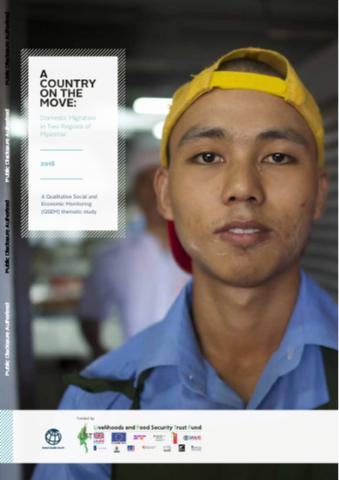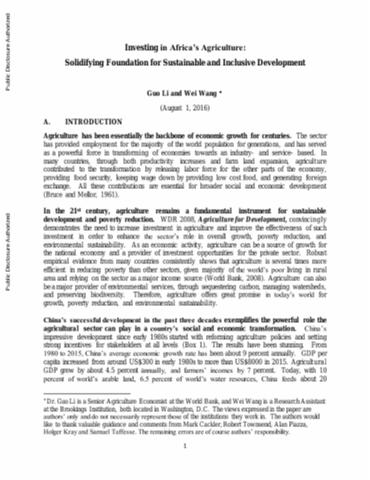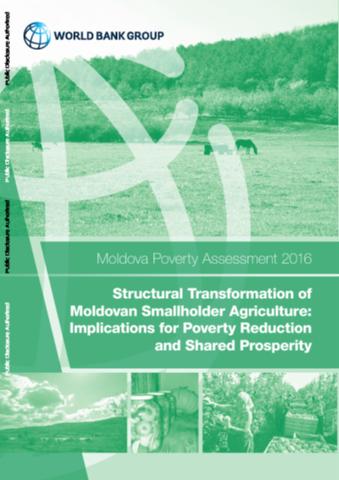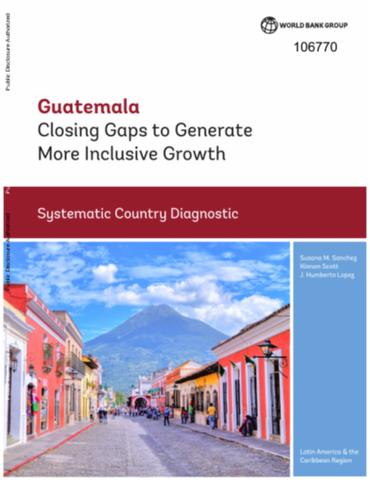The World Bank is a vital source of financial and technical assistance to developing countries around the world. We are not a bank in the ordinary sense but a unique partnership to reduce poverty and support development. The World Bank Group has two ambitious goals: End extreme poverty within a generation and boost shared prosperity.
- To end extreme poverty, the Bank's goal is to decrease the percentage of people living on less than $1.25 a day to no more than 3% by 2030.
- To promote shared prosperity, the goal is to promote income growth of the bottom 40% of the population in each country.
The World Bank Group comprises five institutions managed by their member countries.
The World Bank Group and Land: Working to protect the rights of existing land users and to help secure benefits for smallholder farmers
The World Bank (IBRD and IDA) interacts primarily with governments to increase agricultural productivity, strengthen land tenure policies and improve land governance. More than 90% of the World Bank’s agriculture portfolio focuses on the productivity and access to markets by small holder farmers. Ten percent of our projects focus on the governance of land tenure.
Similarly, investments by the International Finance Corporation (IFC), the World Bank Group’s private sector arm, including those in larger scale enterprises, overwhelmingly support smallholder farmers through improved access to finance, inputs and markets, and as direct suppliers. IFC invests in environmentally and socially sustainable private enterprises in all parts of the value chain (inputs such as irrigation and fertilizers, primary production, processing, transport and storage, traders, and risk management facilities including weather/crop insurance, warehouse financing, etc
For more information, visit the World Bank Group and land and food security (https://www.worldbank.org/en/topic/agriculture/brief/land-and-food-security1
Resources
Displaying 226 - 230 of 4905A Country on the Move
In the last four years Myanmar’s economy has seen a slight shift away from agriculture toward industry and services. This may mark the beginning of a structural transformation away from a rural, agricultural economy toward a more urban, industrial and service-based economy. Urbanization and job creation in urban areas have the potential to have a significant impact on labor and mobility patterns, especially for the landless and land-poor workers that account for a large part of the rural workforce.
Investing in Africa’s Agriculture
Agriculture has been essentially the backbone of economic growth for centuries. The sector has provided employment for the majority of the world population for generations, and has served as a powerful force in transforming of economies towards an industry- and service- based. In many countries, through both productivity increases and farm land expansion, agriculture contributed to the transformation by releasing labor force for the other parts of the economy, providing food security, keeping wage down by providing low cost food, and generating foreign exchange.
Structural Transformation of Small Farms in Moldova
The agricultural and food production sector plays a key role in fighting poverty and food insecurity in Moldova, but is facing critical challenges to modernize and integrate into the international market. This paper focuses on smallholder farms, which make up 95 percent of all farms, and explores their potential for growth and the poverty links. Findings reveal that structural change is slow and smallholder farm growth in Moldova is an exception, not the rule.
Big Data Innovation Challenge
Big data can sound remote and lacking a human dimension, with few obvious links to development and impacting the lives of the poor. Concepts such as anti-poverty targeting, market access or rural electrification seem far more relevant – and easier to grasp. And yet some of today’s most groundbreaking initiatives in these areas rely on big data. This publication profiles these and more, showing how data on an unprecedented scale has the potential to improve lives in unprecedented ways. The featured case stories illustrate the diverse range of big data applications in development.
Guatemala
This Systematic Country Diagnostic (SCD) looks at why a country with such great potential has not been able to materialize it. The SCD analysis has identified several knowledge gaps. The analysis in this report focuses on the 2000 to 2014 period, covering the boom years before 2008 and the global financial crisis and recovery years up to 2014. It is based on a rich household data set from the National Living Standards Measurement Survey (ENCOVI) as well as on data on malnutrition from the 2014 National Survey of Maternal and Child Indicators (ENSMI).










